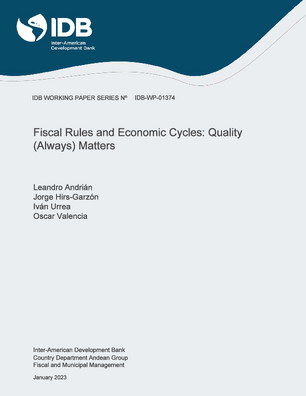Fiscal Rules and Economic Cycles: Quality (Always) Matters
Date
Nov 2022
Governments can issue public debt for both good and bad reasons. The former include intertemporal tax smoothing, fiscal stimulus, and asset management. In contrast, the bad reasons, which generate higher indebtedness, are mainly associated with political cycles, rent capture, intergenerational transfers, and common pool problems. Fiscal rules aim to eliminate the problem of time inconsistency of public finances and minimize debt accumulation by setting debt limits. Despite the theoretical relevance of fiscal rules and institutions to the proper management of fiscal processes in different countries, the evidence indicates mixed results regarding the effectiveness of this type of mechanism for fiscal performance. To understand the effect that fiscal rules have on public debt, this paper studies the effect of different types of rules on debt behavior and their differential effects with respect to the economic cycle. Using a dynamic panel, which enables us to control for endogeneity problems, and the use of a fiscal rule quality index (Schaechter et. al., 2012), this paper finds that fiscal rules only have a significant effect on the reduction of public debt during the positive side of the economic cycle if adequate institutional arrangements accompany them. Furthermore, only some types of fiscal rules (expenditure rules) show a significant effect during the negative part of the cycle. These results have relevant policy implications, as they underscore the importance of (1) developing institutional arrangements that promote the proper functioning of fiscal rules and (2) considering economic cycle asymmetries in order to ensure the appropriate operation of fiscal rules and the fulfillment of policy objectives.




